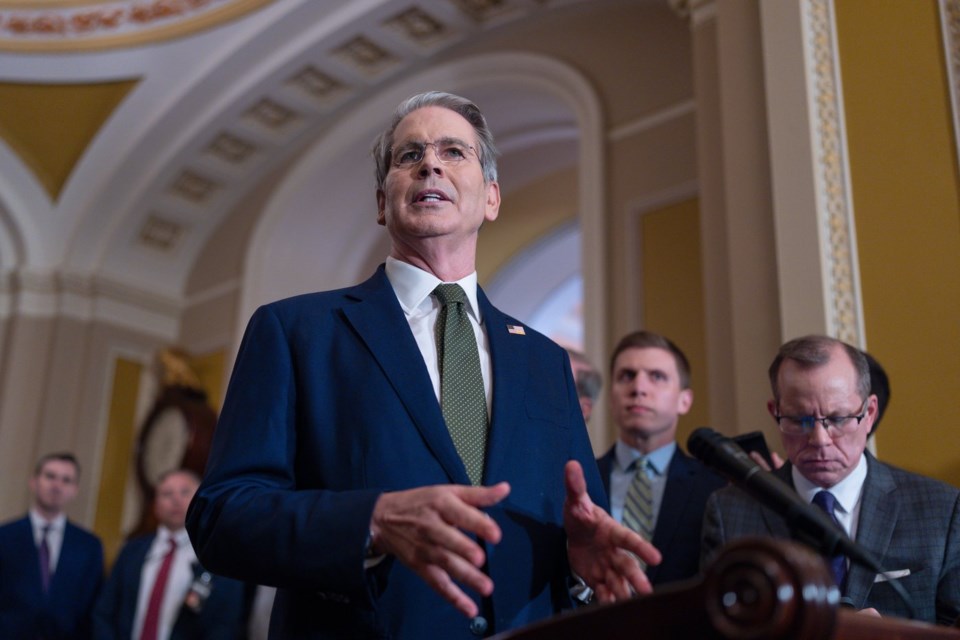WASHINGTON (AP) — Congressional Republicans agreed to remove the so-called revenge tax provision from on Thursday after a request by Treasury Secretary Scott Bessent.
The that was nixed would have allowed the federal government to impose taxes on companies with foreign owners, as well as investors from countries judged as charging “unfair foreign taxes” on U.S. companies.
The measure was expected to lead many companies to avoid investing in the U.S. out of concern that they could face steep taxes. But the removal of the provision adds a wrinkle to Republicans’ plans to try to offset .
Bessent said in an X post that he made the request to lawmakers after reaching an agreement with other countries on the Organization for Economic Co-operation and Development Global Tax Deal. He said that after “months of productive dialogue,” they would “announce a joint understanding among G7 countries that defends American interests.”
Senate Finance Committee Chairman Mike Crapo, R-Idaho, and House Ways and Means Committee Chairman Jason Smith, R-Mo., said they would remove the provision. But, they noted, “Congressional Republicans stand ready to take immediate action if the other parties walk away from this deal or slow walk its implementation.”
The removal of the provision will provide “greater certainty and stability for the global economy and will enhance growth and investment in the United States and beyond,” Bessent said in his post.
An analysis by the , a trade group representing international companies such as Toyota and Nestlé, estimates that the provision would have cost the U.S. 360,000 jobs and $55 billion annually over 10 years in lost gross domestic product.
The Global Business Alliance was among several groups that signed a letter addressed to Senate Majority Leader John Thune, R-S.D., and Crapo warning of the consequences of Section 899.
Republicans are rushing to finish the package this week to meet for passage.
Earlier Thursday, the Senate parliamentarian advised that a central to the spending bill does not adhere to the chamber’s procedural rules, delivering a crucial blow to Republicans, who are counting on big to offset trillions of dollars in .
___
Fatima Hussein And Josh Boak, The Associated Press



